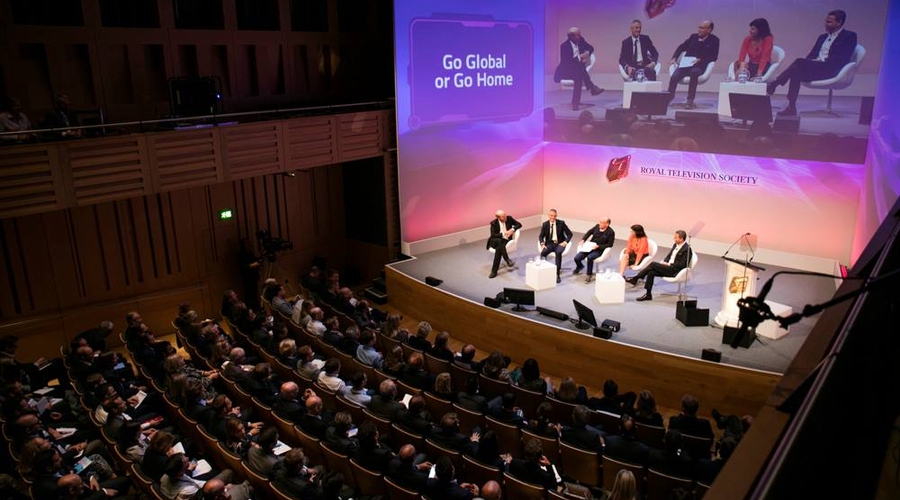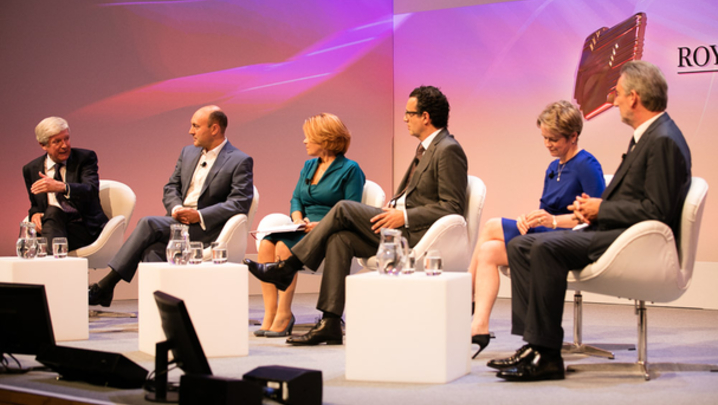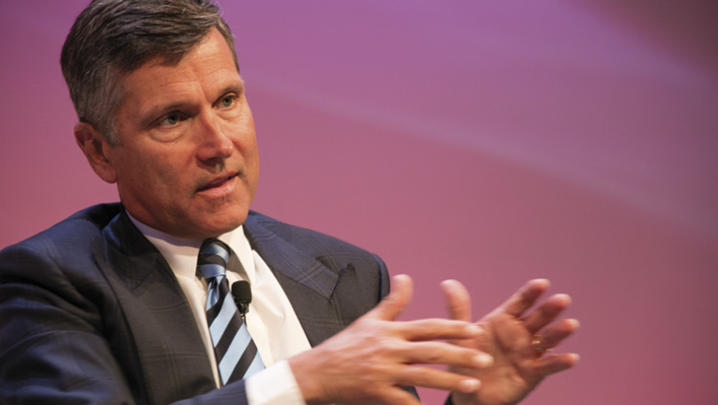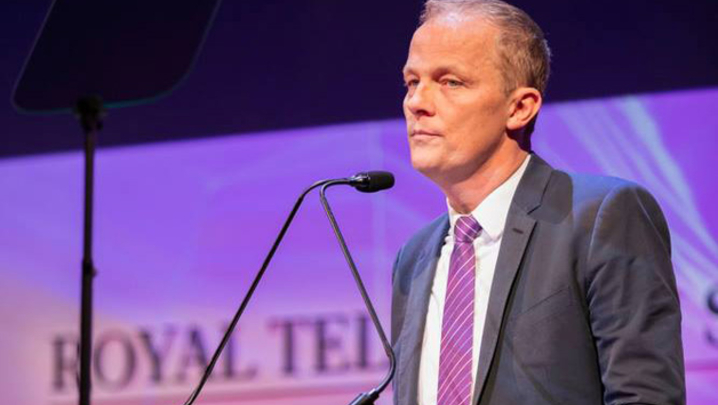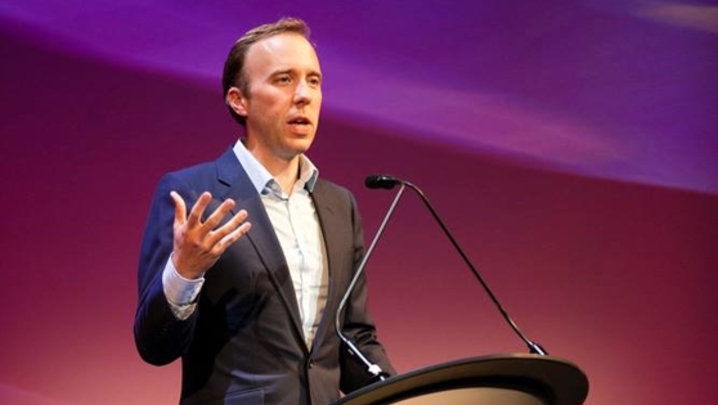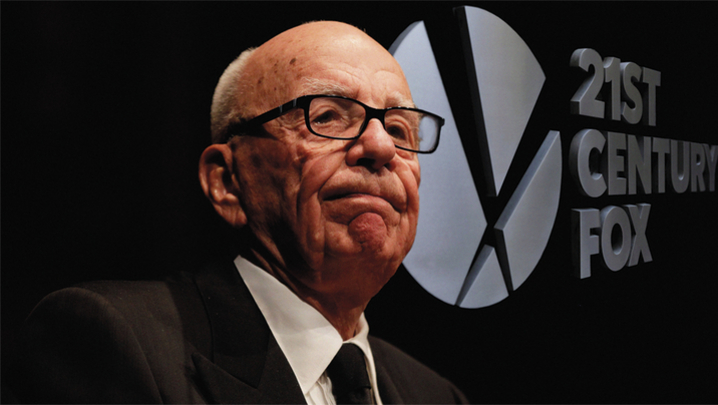Steve Clarke has the highlights from the 'Go Global or Go Home' panel discussion
Global hits, unscripted as well as scripted, are what a lot of people in television dream of. Platform proliferation ought to mean that there are more hits than ever before but, as the panellists in this session – “Go global or go home” – know to their cost, hits remain as elusive as unity in Jeremy Corbyn’s Labour Party.
Three of the four panellists have deep, hands-on experience of selling drama – Tim Davie, CEO, BBC Worldwide and Director, Global; Michael Edelstein, President, NBCUniversal International Studios; and Jane Millichip, Managing Director, Sky Vision.
The fourth, Stephen Lambert, Founder and CEO of Studio Lambert, specialises in reality shows. He is famous for being the brains behind Wife Swap, Undercover Boss and Gogglebox.
He, too, wants to join the drama gravy train and was undeterred by worries articulated during the debate that the drama boom could be heading for bust.
Millichip cautioned that drama was in danger of experiencing a sub-prime-mortgage-style crisis unless new sources of finance emerged. “In terms of funding, it is a very complex area. Nowadays, it’s more akin to the film industry,” she stressed.
The Sky Vision boss added: “We do need to be quite wary at the moment. Ambition has never been higher, film-star casting is commonplace, but licence fees are not necessarily going up, particularly commissioning licence fees. They’re benchmarks against the available audience. So, a gap is appearing in the international deficit.… If we’re not careful we could be heading towards a sub-prime-mortgage moment – if we don’t invest wisely and judiciously.”
Millichip went on: “The model isn’t broken but we need to source more forms of funding that aren’t deriving their value necessarily from the international pot, whether that’s government funding, foundations, branded content or media agencies.
“We need fresh blood in the funding mix in order to revive it, because it’s stressed at the moment, with the broadcaster, producer and distributor.… I think that judicious investment will still come good.”
Did Davie agree, probed session chair, Tim Hincks? “I recognise the risk,” replied the BBC Worldwide man, whose international scripted hits include Doctor Who and Sherlock."
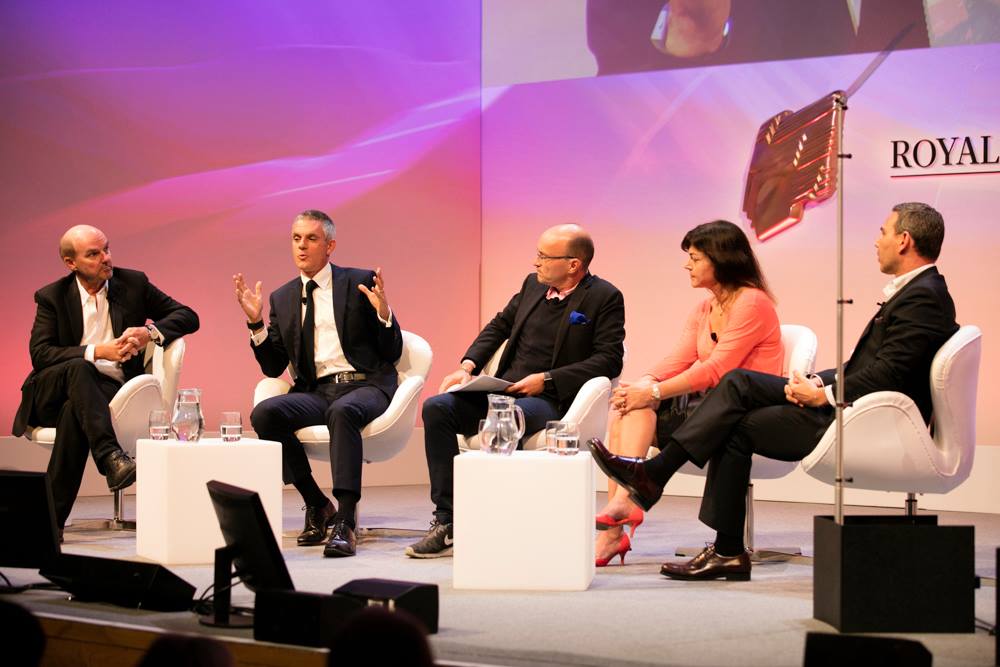
“I think the party’s going to continue for a few years yet. I saw that 1,310 international new drama series were launched this year. That’s a staggering number,” said Davie. “If you boil it all down, it’s what drives pay subscription… drama and sport."
“The risks are there. Jane puts it very well in terms of the funding. It’s a game where you have to watch your amortisation and what cash is going out the door. You have to be incredibly creative about who owns what and how funding gets in.”
NBCU’s Edelstein was in the happy position of having made a mint from his company selling Downton Abbey to just about everywhere under the sun.
In retrospect, turning a glossy English country-house period drama into a hit everywhere from Boston to Beijing looks simple. If only.
As Edelstein stressed, a lot of British drama is too dark to gain wide appeal internationally: “When Downton started nobody knew what to expect from it. We saw it very early on in rough cut and got very excited about it because it did not play like a traditional British drama.
“Many British dramas are dark and heavy. Downton is entirely aspirational. You have a chamber maid who dreams of being the secretary or the lady of the house just trying to find love. It really touched on something that we thought was aspirational and global. So we pushed it out to all of our clients.”
The NBCU executive revealed that Downton was originally rejected in Australia. Even when a sale was secured, the marketing campaign needed to play down the show’s Edwardian setting. “We ran a very aggressive, modern marketing campaign, using contemporary images to sell the show,” recalled Edelstein of Downton’s experience Down Under.
Inevitably, securing the all-important American sale was key: “We got very involved in an Emmy campaign in the US. If we could make the show successful there, that would drive global success.”
''The only way that you can de-risk is to have enough irons in the fire so that hits pay for all the failures"
Turning to Lambert, Hincks asked if it wasn’t a bit late to be getting into the market for scripted shows?
“No, I don’t think that it’s too late. As a British broadcaster-producer, you have to be very aware of the opportunities in America. In the past 20 years, I’ve always operated as a British-American producer.
“Is there is risk of a sub-prime? It’s all about predicting the hits. You don’t know what the hits are going to be, so it’s easy to say, ‘Yes, we can profit’ – but who knows what the hits are going to be. Interestingly, Downton didn’t end up on an NBC channel in the US. It’s on PBS.
“The only way that you can actually de-risk is to have enough irons in the fire so that hits pay for all the failures.”
Talking of hits, Lambert has a habit of securing highly popular shows on both sides of the Atlantic. He is one of the most successful practitioners of unscripted TV in the world.
But unlike drama, buyers will pay the full cost of production for reality shows, Lambert pointed out.
So how do you create a world beater such as Wife Swap or Gogglebox, recently sold to Mongolia? That, suggested Lambert, was not the starting point: “When you try and sell a show initially to an individual market, they’re not thinking about the international market. The people who buy in Britain are not incentivised to care about whether it is going to be a global hit.
“Time and again, what they are interested in has very little international value. You see this particularly with drama.
“Their partners in BBC Worldwide might be… but the actual buyers are so focused, probably rightly, on simply getting a hit for their network.”
Gogglebox was not conceived as an international best-seller but rather as a show that Channel 4 would buy, suggested Hincks.
“I was proved wrong [about Gogglebox]. Clearly, people all over the world have the talent to make it.”
“Yes, but we’re also thinking about shows we think are repeatable, have a format and the variety of storytelling within that structure,” said Lambert. “You’re trying to come up with an idea you fall in love with and you get excited about. That’s quite rare.
“And when you do, you convey that enthusiasm to the people you’re trying to sell it to. Very often, they will react to that and give you the chance to make it.
“So, many of these ideas then live or die by the execution.”
His concern was that Gogglebox (shown in 32 countries) would struggle outside the UK because of the fast turnaround involved in production.
“It’s a comedy, and comedy is all about the skill of editing,” said Lambert. “We’ve got so little time to edit it. We have a team [in the UK)] that is able to do that. I was very sceptical that other countries would have similar teams.
“I was proved wrong. Clearly, people all over the world have the talent to make it.”
Hincks put it to Lambert that Channel 4 played a part in the show’s success. The broadcaster’s creative director, Jay Hunt, had said that she stuck with Gogglebox despite initial low ratings.
“I would say that’s not quite the whole story,” countered the reality doyen. “Its audience increase across those first four episodes was dramatic. It started off at 700,000. By the end of the four-episode run it was rating at least 1.5 to 1.6 million.”
Did being part of All3Media (Studio Lambert is owned by All3) have any bearing on that?
“It’s more to do with the fact that All3Media is a very good international distributor,” Lambert replied. “We worked very closely with them on taking Gogglebox to the international market and made sure we provided the right support.”
The panellists were: Tim Davie, CEO, BBC Worldwide and Director, Global; Michael Edelstein, President, NBCUniversal International Studios; Stephen Lambert, Founder and CEO, Studio Lambert; Jane Millichip, Managing Director, Sky Vision. The session was chaired by Tim Hincks and produced by Alan Clements.

